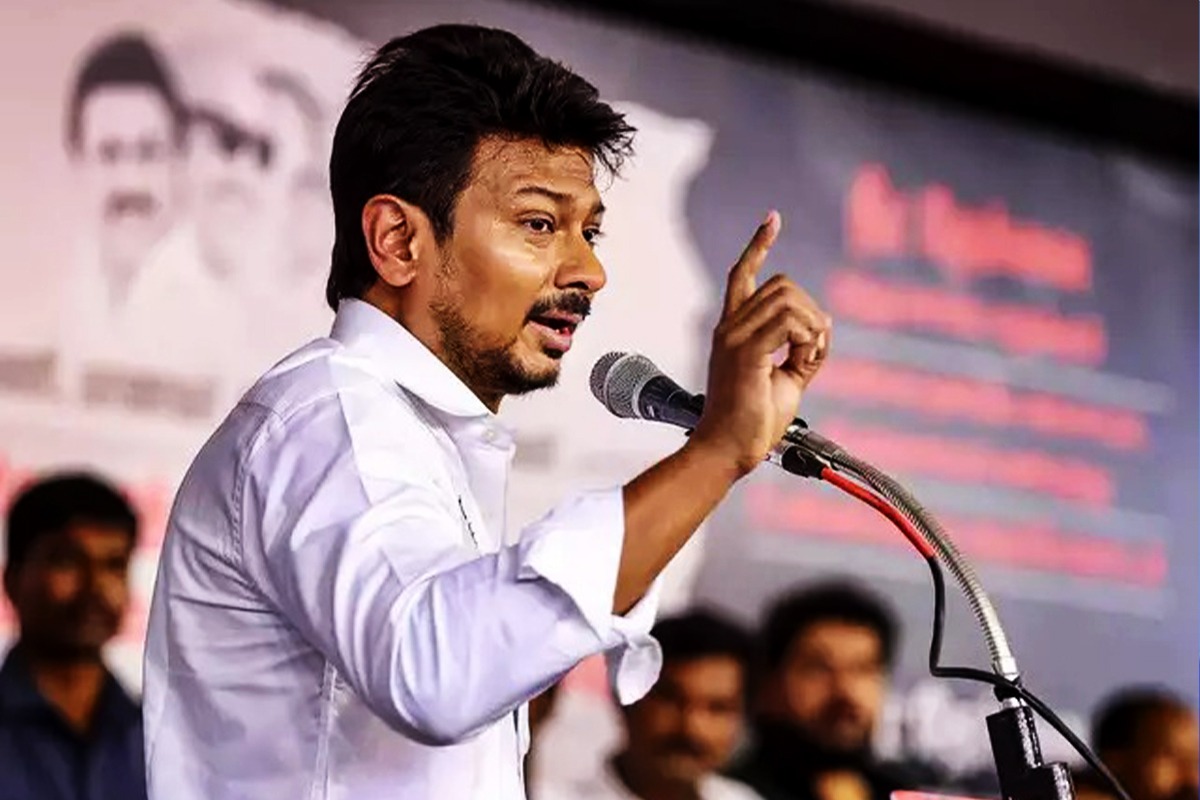NEW DELHI: A recent statement by Tamil Nadu chief minister MK Stalin’s son Udhayanidhi has ignited controversy and discussions surrounding the Sanatan Dharma.
On September 2, Udhayanidhi Stalin posted a series of tweets on a social media platform (referred to as ‘X’ in the article), where he strongly criticized Sanatan Dharma, comparing it to diseases like malaria and dengue.
He alleged that Sanatan Dharma divides people based on caste and religion and advocated for its eradication, emphasizing that doing so would uphold humanity and human equality. Udhayanidhi made these comments during a conference organized in Chennai by the Tamil Nadu Progressive Writers Artists Association. The theme of the conference was the ‘eradication of Sanatana.’ He expressed gratitude to the organizers for choosing the name ‘Sanatana Abolition Conference,’ indicating that he appreciated the focus on abolishing rather than opposing Sanatan Dharma. His comments have attracted severe criticism from the Bharatiya Janata Party (BJP), its allies and angered a large number Hindus.
READ MORE: After Stalin, D Raja attacks Sanatan, says it’s not dharma but patriarchal
Tamil Nadu BJP president K Annamalai argued that ‘Sanatan Dharma’ signifies an eternal and timeless philosophy that predates other religions. He accused Stalin of spreading hatred for a particular religion and questioned his authority to call for the abolition of Sanatan Dharma.
This controversy is situated within the broader political context of Tamil Nadu and Dravidian politics. Dravidian parties, such as the DMK, have historically promoted regionalism and have occasionally adopted anti-Hindu positions. MK Stalin’s leadership has seen a more pronounced shift towards emphasizing Hinduphobia and regressive regionalism, which experts believe could be detrimental to national unity and peaceful coexistence.
Some experts argue that Dravidian politics has long targeted Hindu Brahmins as a perceived symbol of oppression. The historical Aryan-Dravidian divide theory, although discredited by modern research, has fueled resentment against Hindu Brahmins, leading to atrocities and discrimination against them in history.
READ MORE: Himanta won’t condemn Stalin for Sanatan remark, because…
However, the comments have come as a boon for the BJP which is eying a third term in the 2024 Lok Sabha elections. Union home minister Amit Shah has criticized the DMK and its alliance with the Congress, accusing them of insulting Sanatan Dharma for vote bank politics. He claimed that the alliance bloc “hates Hinduism” and is an assault on the country’s heritage.
The comments have also divided newly-formed INDIA bloc, which the DMK is a part of, with leaders of many constituent parties distancing themselves from the remark. While Madhya Pradesh chief minister hopeful Kamal Nath rushed to organize a Ram Katha, RJD’s Lalu Prasad made a temple visit, and West Bengal CM Mamata Banerjee, often accused of sidelining Hindu interests, issued a statement saying she supports Sanatan Dharma.

